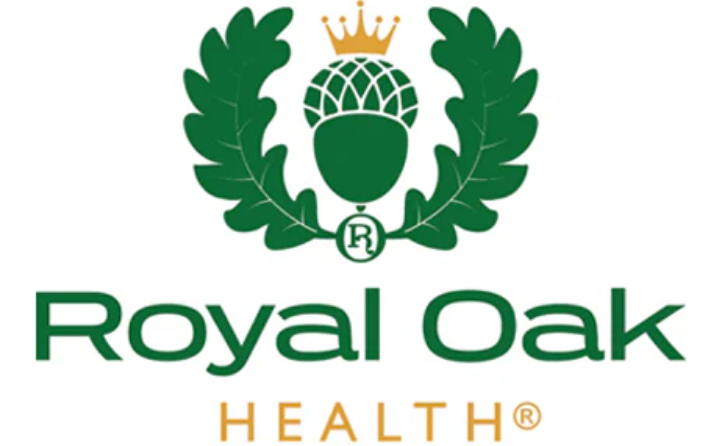In the world of supplements, few nutrients receive as much attention as Vitamin D3. Known as the "sunshine vitamin," this essential nutrient plays a pivotal role in overall health and well-being. Despite its importance, many people worldwide are deficient in Vitamin D, making supplementation vital for maintaining optimal health.
In this guide, we’ll explore everything you need to know about Vitamin D3 5,000 IU—a powerful supplement that can positively impact your life.
What is Vitamin D3?
Vitamin D3, also known as cholecalciferol, is a fat-soluble vitamin produced by the body when the skin is exposed to sunlight. Unlike other vitamins, Vitamin D functions more like a hormone, influencing various bodily systems and playing a critical role in bone health, immune function, and cellular growth. While it can be obtained from foods like fatty fish, fortified dairy products, and egg yolks, sunlight remains the most efficient source.
Unfortunately, modern lifestyles often limit sun exposure, leading to widespread deficiencies.
Key Benefits of Vitamin D3
- Supports Bone Health
Vitamin D3 is essential for calcium absorption in the gut, which supports strong and healthy bones. Without adequate Vitamin D, bones can become thin, brittle, or misshapen. Supplementing with Vitamin D3 5,000 IU can help prevent conditions like osteoporosis and rickets.
- Boosts Immune Function
Vitamin D3 plays a crucial role in regulating the immune system. It enhances the body’s ability to fight off infections, including colds and flu. Research suggests that maintaining optimal Vitamin D levels may also reduce the risk of autoimmune diseases.
- Improves Mood and Mental Health
Studies link Vitamin D deficiency to mood disorders such as depression and anxiety. Supplementing with Vitamin D3 can improve serotonin levels in the brain, leading to better mood regulation and a reduced risk of mental health issues.
- Promotes Heart Health
Vitamin D3 supports cardiovascular health by helping to maintain healthy blood pressure levels and reducing inflammation. Some studies indicate it may also lower the risk of heart disease.
- Enhances Muscle Function
Adequate Vitamin D3 levels are crucial for maintaining muscle strength and function, particularly in older adults. This can reduce the risk of falls and improve mobility.
- May Help with Weight Management
Emerging research suggests Vitamin D3 could influence fat storage and appetite regulation, supporting healthy weight management when combined with a balanced lifestyle.
How to Take Vitamin D3 5,000 IU Safely
- Consult Your Healthcare Provider
Get your blood levels tested before starting Vitamin D3 5,000 IU to determine the right dosage for you.
- Take with Food
Vitamin D3 is fat-soluble, so it’s best absorbed when taken with a meal that contains healthy fats.
- Monitor Your Levels
Regular blood tests can ensure you’re maintaining optimal Vitamin D levels.
- Be Consistent
Take your supplement at the same time each day to establish a routine.
Why is it important to pair Vitamin D3 and Vitamin K2 together?
When taking high doses of Vitamin D3, pairing it with Vitamin K2 is beneficial. While Vitamin D3 helps your body absorb calcium, Vitamin K2 ensures calcium is directed to the bones and teeth rather than accumulating in the arteries or soft tissues.
What’s the Difference Between Vitamin D2 and D3?
Vitamin D3 (cholecalciferol) is the form naturally produced by the body and is more effective at raising blood levels of Vitamin D than Vitamin D2 (ergocalciferol).
What Does IU Mean in Terms of Strength?
"IU" stands for "International Units," a standard unit of measurement used in pharmacology to quantify the strength of vitamins, hormones, and other substances. For example, our supplements offer Vitamin D3 at 5,000 IU and 3,000 IU strengths.
Who Should Consider Taking Vitamin D3 5,000 IU?
Certain groups are at higher risk of deficiency and may benefit from a 5,000 IU supplement:
- People in Northern Latitudes: Reduced sunlight exposure during winter months can lower Vitamin D production.
- Individuals with Darker Skin: Higher melanin levels reduce the skin's ability to produce Vitamin D from sunlight.
- Older Adults: The skin’s ability to synthesize Vitamin D decreases with age.
- Individuals with Limited Sun Exposure: Indoor lifestyles or clothing that covers most of the skin can limit Vitamin D production.
- People with Certain Health Conditions: Conditions like Crohn’s disease, celiac disease, and obesity can impair Vitamin D absorption or utilization.
Advice for taking Vitamin D3 5,000 IU
Consult Your Healthcare Provider - Get your blood levels tested before starting Vitamin D3 5,000 IU to determine the right dosage for you.
Take with Food - Vitamin D3 is fat-soluble, so it’s best absorbed when taken with a meal that contains healthy fats.
Monitor Your Levels - Regular blood tests can ensure you’re maintaining optimal Vitamin D levels.
Be Consistent - Take your supplement at the same time each day to establish a routine.
Take daily- individuals can safely take 5,000 IU daily but always consult your healthcare provider to determine your needs.
Track your progress - It can take weeks to months to correct a deficiency and feel the benefits of supplementation. Regular blood tests can track your progress.
Do not exceed the stated recommended amount - Excessive doses can cause nausea, vomiting, and kidney issues.
View our Product
Vitamin D3 5,000 IU with Vitamin K2
Delivers maximum potency with 5,000 IU of Vitamin D3 paired with Vitamin K2 for optimal calcium absorption. Approved by the European Food Safety Authority (EFSA).





